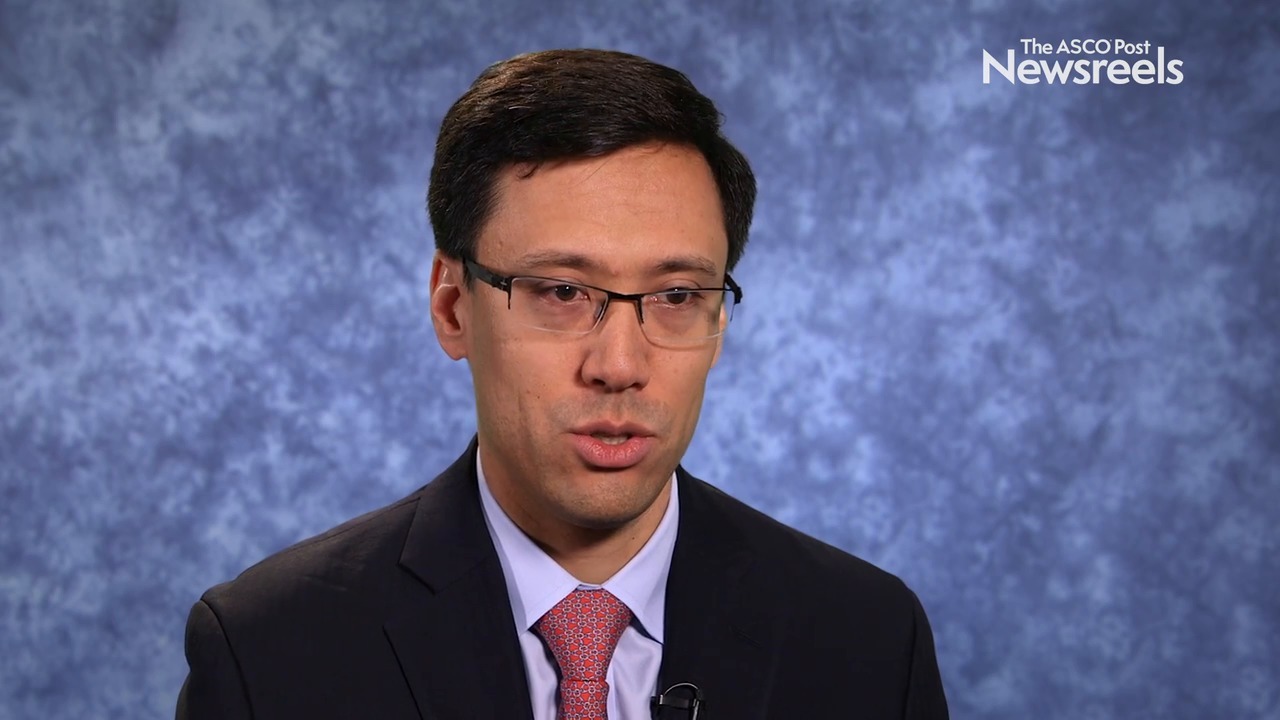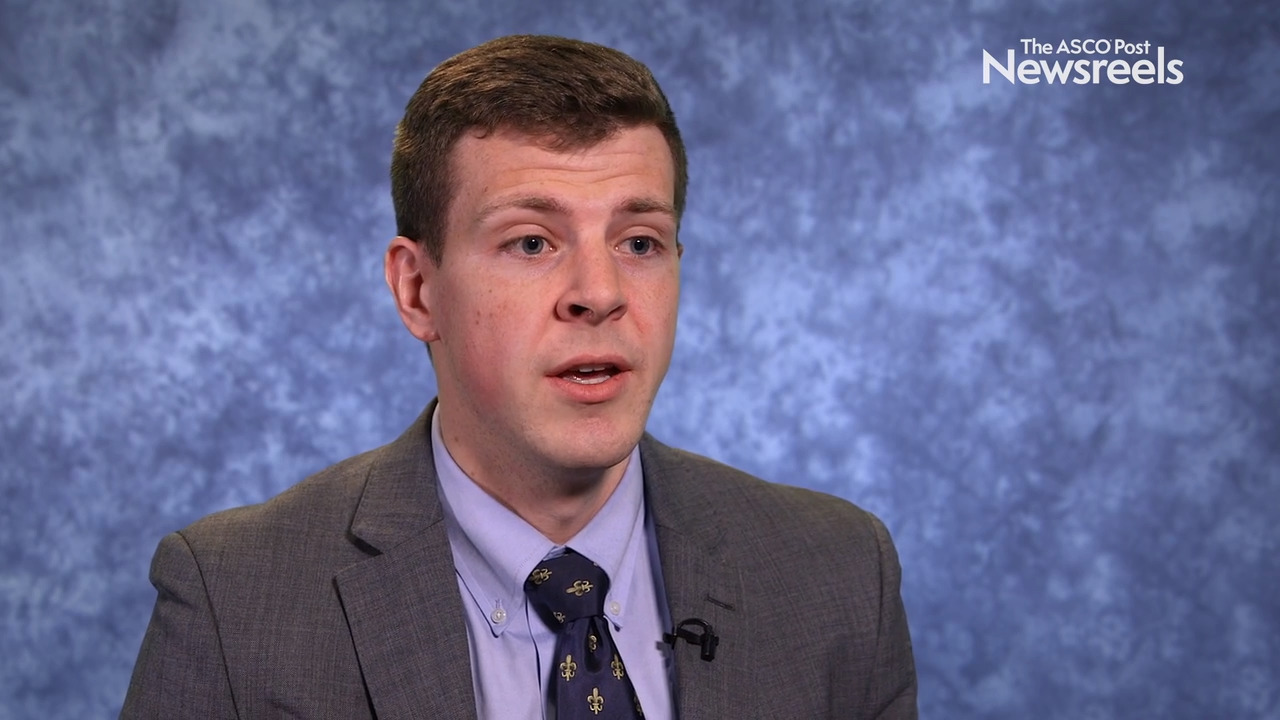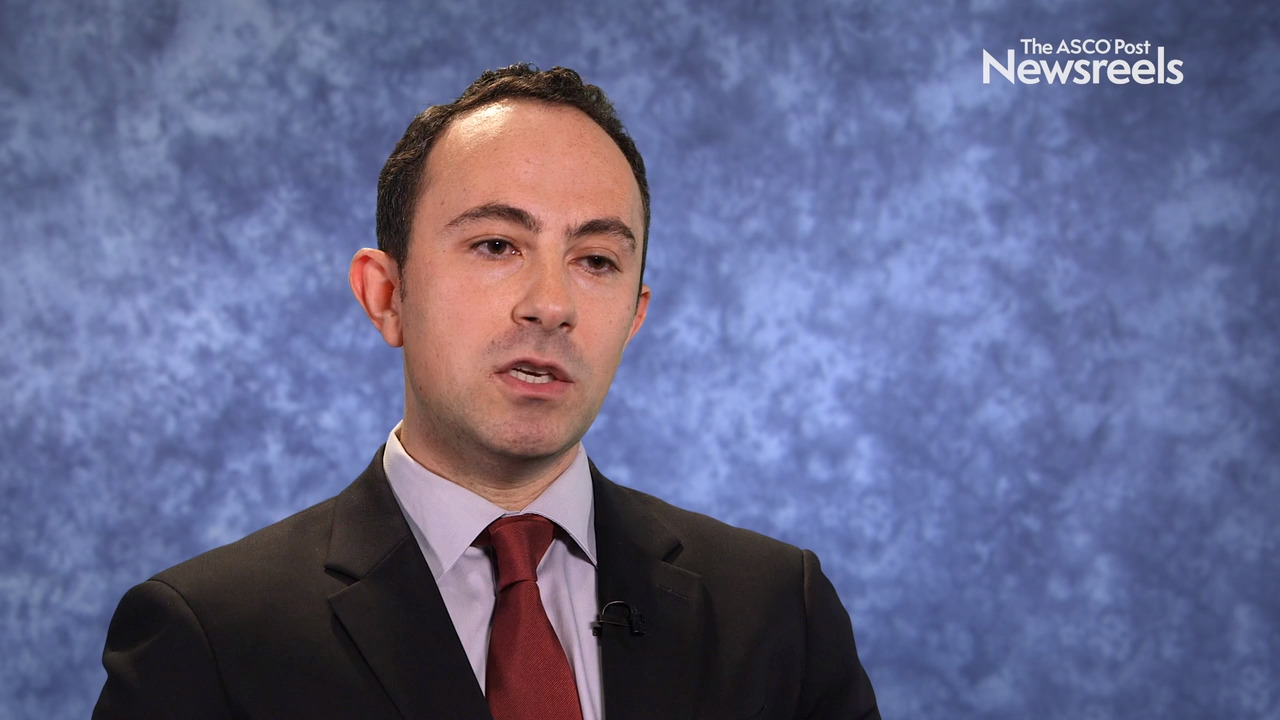Robert Olson, MD, on Quality-of-Life Outcomes After Stereotactic Ablative Radiotherapy vs Standard-of-Care Palliative Treatments
2019 ASTRO Annual Meeting
Robert Olson, MD, of the BC Cancer Centre for the North, discusses a secondary analysis of the SABR-COMET trial, which showed there was a small magnitude decline in quality of life in both arms of the study but no associated detriment with stereotactic ablative radiotherapy (Abstract 148).
Andreas Rimner, MD, of Memorial Sloan Kettering Cancer Center, discusses study findings showing that, for patients with stage III non–small cell lung cancer, durvalumab reduced the rate of and time to disease progression vs placebo and also reduced the number of new distant lesions (Abstract LBA6).
Justin Barnes, MS, of the St. Louis University School of Medicine, discusses his findings on the risk of suicide, which is higher in patients with cancer than in other adults but can be reduced by health policy interventions, including components of the Affordable Care Act (Abstract LBA9).
Michael J. LaRiviere, MD, of the University of Pennsylvania, discusses the safety and efficacy of an alternate radiation-based approach to using cytotoxic chemotherapy alone in preparation for CAR T-cell treatment (Abstract 135).
Youssef Zeidan, MD, PhD, of the American University of Beirut Medical Center, discusses study findings showing that, in patients with one to three positive lymph nodes, postmastectomy radiation treatment decreased the risk of locoregional recurrence, particularly in estrogen receptor–positive disease (Abstract 83).
Ryan Phillips, MD, PhD, of Johns Hopkins Medical Institutions, discusses phase II findings suggesting that treatment with stereotactic ablative radiation significantly decreased the risk of disease progression at 6 months and increased progression-free survival (Abstract LBA3).





